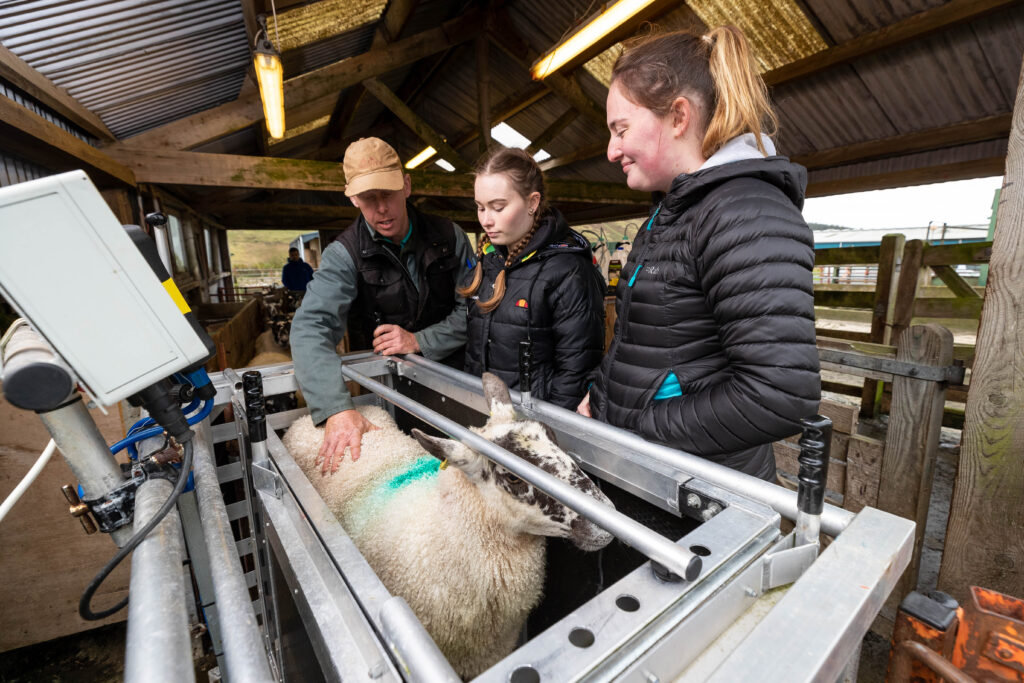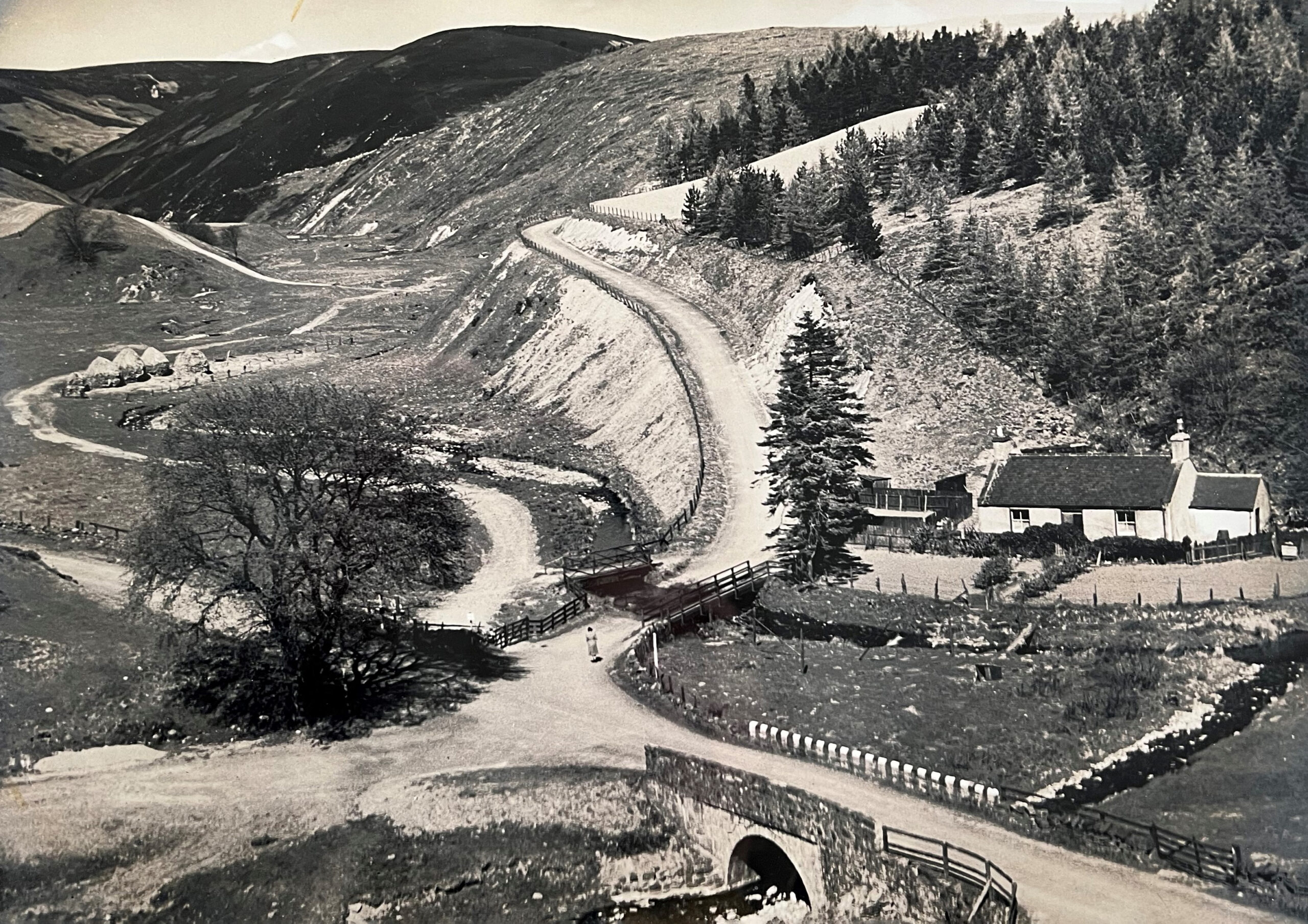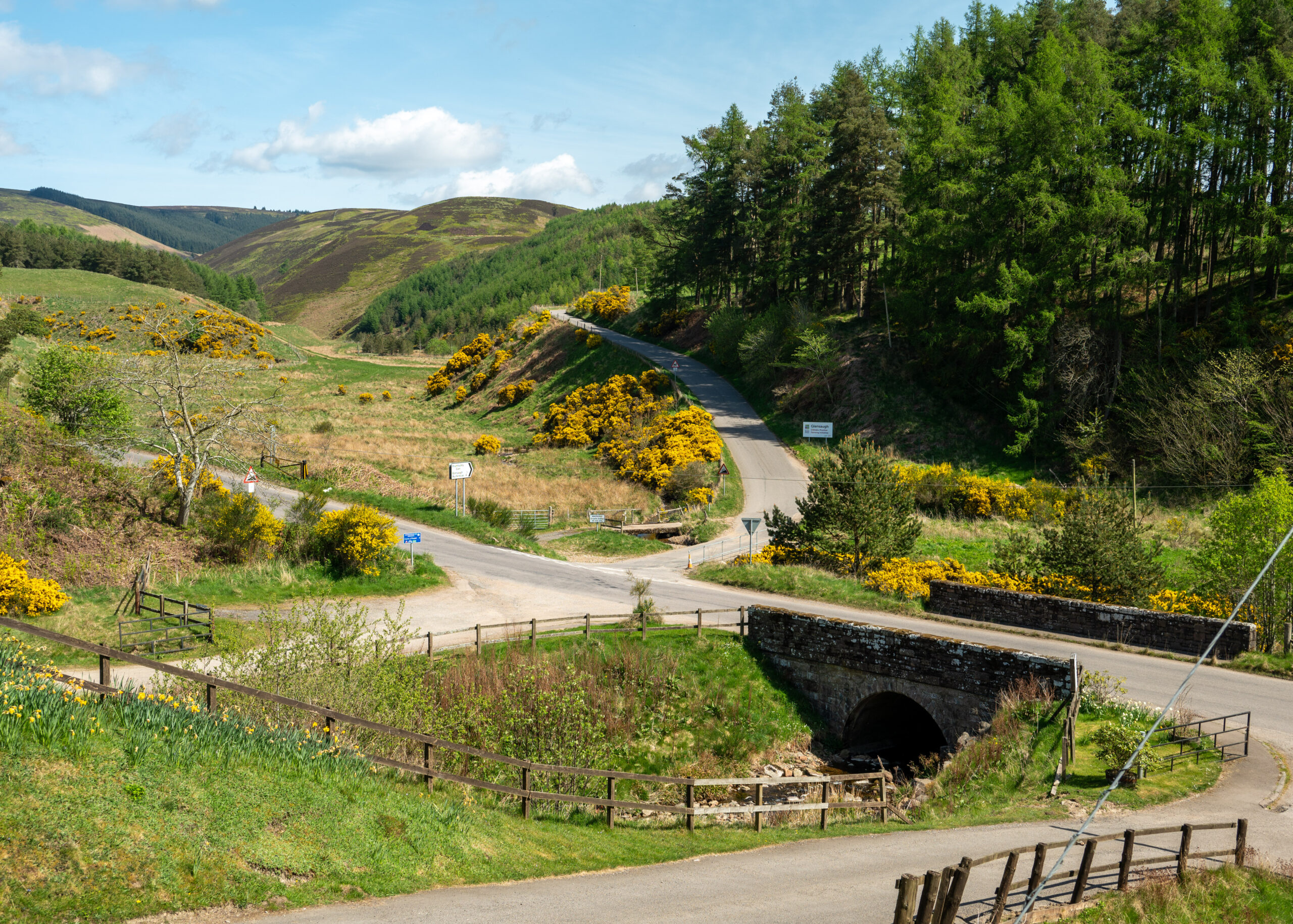Glensaugh – about us
Decades of research and monitoring:
Glensaugh has a fantastic collection of historical baseline data and scientific observation spanning many decades, which is ideal for underpinning research and demonstration of the scale and nature of transformation needed in farming.
Displaying the significant contribution that the sector can make towards the Government’s climate and biodiversity targets.
Glensaugh is also a national monitoring centre for the Environmental Change Network (ECN), Cosmic-ray Soil Moisture Observing System UK (COSMOS-UK), and the Defra Acid deposition (UKEAP) network. It is also an Ecological Continuity Trust LTE/LTM Hub and a BIOSCAN-UK project site.
Long-term research platforms like Glensaugh are fantastic places to conduct long-run, whole-farm experiments including those which for a private farmer could be high-risk – as a research farm we can test and demonstrate transformative ways of managing our uplands, underpinned by rigorous science.
Please contact us if you are interested in the possibility of collaborating with us, using any of our facilities (indoor and/or outdoor), setting up research, sample processing and/or teaching at Glensaugh.
Tackling the climate and biodiversity crises with transformative farming and technological innovations
Climate-Positive Farming Management Team

More about the farm
Glensaugh is managed as an upland livestock farm, just over 1000ha in area, with sheep, cattle and red deer, improved and extensive pastures, moorland, woodland and peatland. The Highland Boundary Fault divides Glensaugh into two distinct geological zones.
Glensaugh currently has c 17% woodland cover, which is being proactively managed and expanded – for carbon storage, biodiversity and other benefits – reflecting the ambitions of the UK and Scottish Governments. It has been a research farm for more than 80 years. Agriculture is highly exposed to climate change – and farming activities also contribute to climate change through release of greenhouse gases into the atmosphere.
Agriculture and related land use contribute significantly to UK greenhouse gas emissions. The Scottish and UK Governments and UK Climate Change Committee have pledged to support the necessary changes in land use to achieve net zero and we need to progress with this as a matter of urgency. The James Hutton Institute’s research farms have long been at the forefront of innovation in land and agricultural practices, trialling and testing new farm methods, livestock and crops. Now, more than ever, they are needed to test and demonstrate transformative ways of managing our land.

Teaching and demonstrating
Teaching is an important and integral activity for the institute and its research farms, and forms an important element of our work at Glensaugh. Our research findings combined with on-farm demonstrations give powerful opportunities to provide independent, objective advice on synergies and trade-offs, and the cultural, structural and technological opportunities and barriers which can emerge during transition towards climate-positive farming.
On-farm visits can be actual and virtual – with new techniques in visualisation (e.g. Virtual Reality videos) developed by our institute’s scientists.
The farm is already being used by various colleges and universities (photo courtesy of SRUC) for training and research and, reflecting our commitment to the open science agenda, is also available for other Institutions for research or educational purposes. In addition to the outdoor research facilities, Glensaugh has flexible indoor spaces with meeting rooms, computing facilities, kitchen, laboratories, ovens, freezers, cold stores and more.
Our Partners and Funders
We are delighted to be partnering with Baillie Gifford who are funding our Climate-Positive farming Initiative Director, through an Entrepreneurial Research Fellowship, This is an exciting partnership for us which also brings us new relationships and contacts in sectors that environment and land use research establishments have traditionally been less well connected with.
A wide range of research funded by the Scottish Government funded Strategic Research Programme supports the transformation pathway for the farm, with associated involvement of other SEFARI Institutes.
We have also received generous support and funding from the Scottish Government’s Just Transition Fund, as well as the Macaulay Development Trust for a range of activities supporting our Climate-Positive Farming Initiative. We have been and continue to be supported by a wide range of other funders whose support is much appreciated and is individually recognised against the specific projects that they have funded/co-funded.

We are also actively engaging with many other organisations and networks as we take forward our Climate-Positive Farming Initiative, including Water to Water, Forest and Land Scotland, Scottish Forestry, Forest Research, the UK Centre for Ecology and Hydrology, Scotland’s Moorland Forum, NFUS, SAOS, Nature Friendly Farming Network, LEAF and other farm/land management stakeholder groups.
A key aim is ensuring that data and evidence from the project supports the aim of a Just Transition for a sector facing massive challenges into the future. There is much potential for creative collaborations in this critically important area and our ambition is to make the most of such opportunities to share learning, create joint events and other outputs as relevant.
Our location
Glensaugh is located in North-East Scotland in the Grampian foothills.
Here are more details on where we are and here are directions on how to get to the farm.


